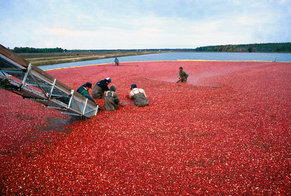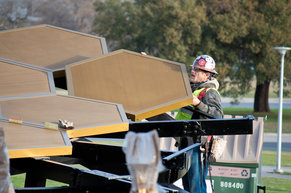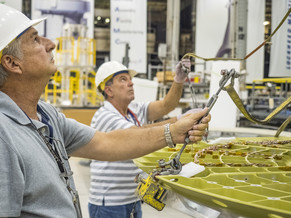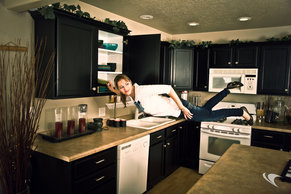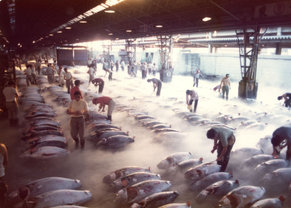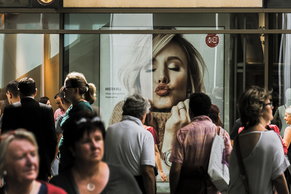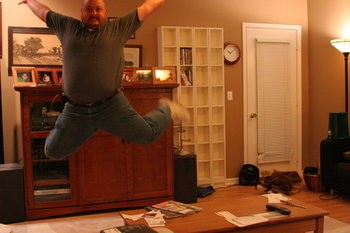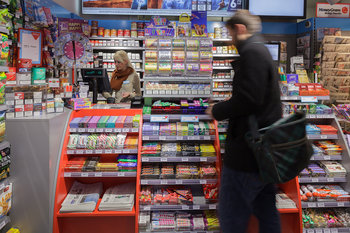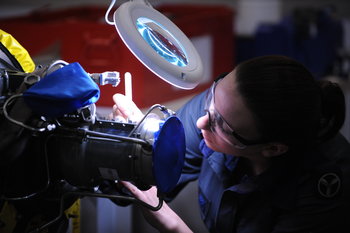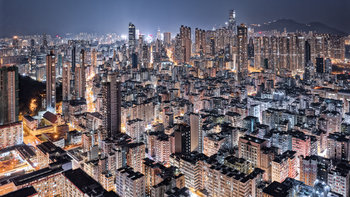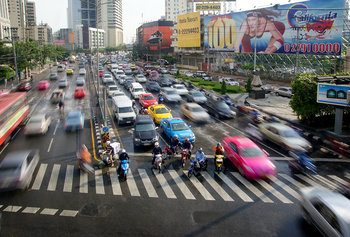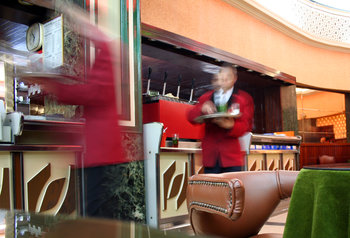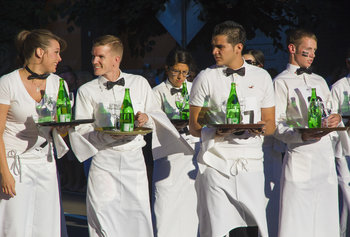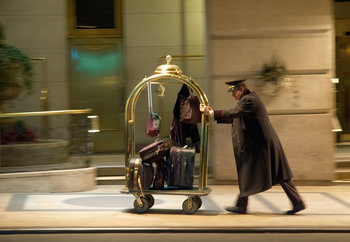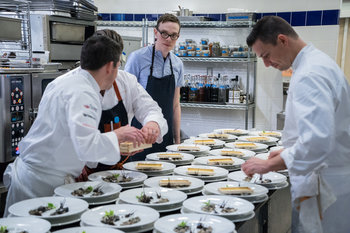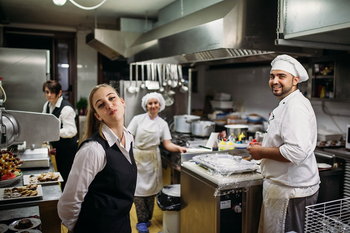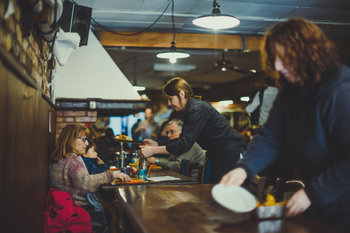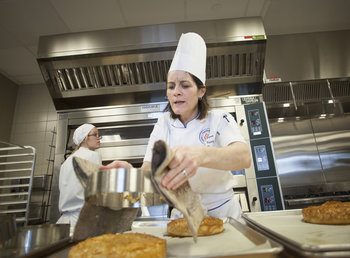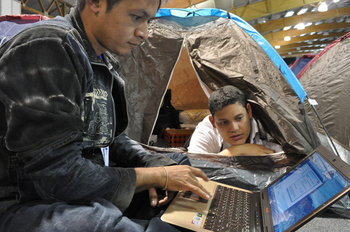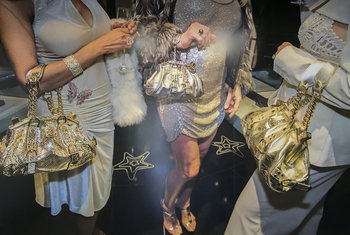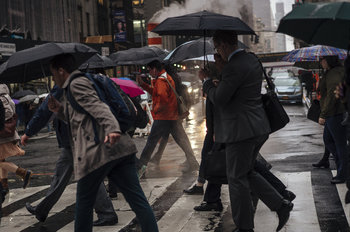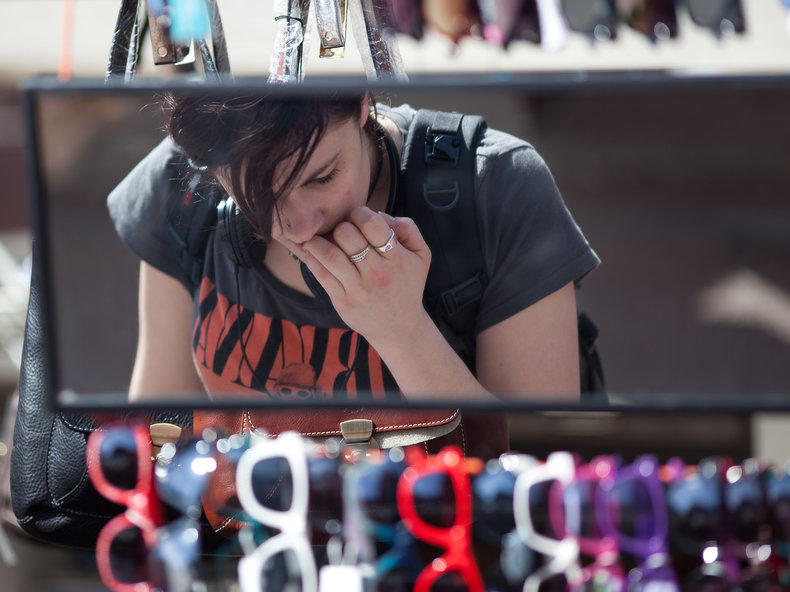
Consumer Goods
Goods that are purchased by individuals and families.Beverages | Books |
Cat Food | Flights |
Mobile Devices | Restaurants |
Socks | Washing Machines |
Fast Moving Consumer Goods
Fast moving consumer goods are consumer goods that are quickly used up and repurchased. These are typically competitive high-value markets.Cleaning Supplies | Cosmetics |
Food | Toiletries |
Consumer Discretionary
Consumer purchases that can easily be deferred such that sales are likely to increase in a good economy and decrease in a bad economy.Computers | Fine Dining |
Furniture | Vacations |
Consumer Durables
Relatively expensive consumer goods that have a useful life of 3 years or more.Appliances | Furniture & Fixtures |
Homes | Vehicles |
Business Goods
Goods that purchased by businesses.Aircraft | Business Travel |
Industrial Equipment | Software |
Commodities
Goods that are viewed as interchangeable that are sold on a liquid market such that individual buyers and sellers have little influence over the price.Coffee | Corn |
Economy Flights | Gold |
Plastic | Wood |
Inferior Good
Demand for an inferior good drops as people's income rises.Convenience Food | Fast Food |
High Interest Loans | Instant Noodles |
Used Cars |
Superior Goods
Superior goods make up a larger percentage of consumption as income rises.Fine Food | First Class Flights |
Luxury Fashions | Luxury Hotels |
Veblen Goods
Veblen goods are a theoretical type of good where sellers can increase demand by increasing price. This supposedly includes things like luxury goods whereby people seek social status from high price items. However, if you put luxury goods on sale demand tends to be extraordinarily high. As such, veblen goods are rare or may not exist at all. Luxury goods do sell social status by building up a reputation, brand image and customer experience such that these are the basis for their ability to charge a high price.Fashion | Handbags |
Management Consulting | Sporting Goods |
Necessity Goods
Goods that consumers truly need such that they are the last things that are cut as income decreases.Electricity | Food Staples |
Toiletries | Water |
Services
Services are goods that derive most of their value from intangible things such as customer experience, advice and intangible results such as transporting someone somewhere. Some definitions consider services goods and others do not. Generally speaking, it is outdated to think that goods must have a physical presence.Consulting | Events |
Flights | Hotels |
Restaurants | Theme Parks |
Club Goods
Club goods are services that offer access to large scale capital.Art Museums | Highways |
Ski Hills | Theme Parks |
Information Good
Information goods are goods that derive their value from information including digital experiences.Books | Consulting |
Mobile Apps | Video Games |
Complementary Goods
Goods that have related demand such that sales of one increase sales of the other.Gas Burning Cars & Gas | Mobile Phones & Mobile Devices |
Printers & Ink | Snowboarding Resorts & Snowboards |
Substitute Good
Goods that act as substitutes for one another such that demand for one may lower demand for the other.Beef & Chicken | Bowling Alleys & Movie Theaters |
Mobile Phones & Televisions | Night Clubs & Pubs |
Restaurants & Grocery Stores | Tea & Coffee |
Capital Goods
Goods that are used to produce other goods.Computer | Hotel Beds |
Industrial Robot | Office Chair |
Restaurant Furniture | Ship |
Solar Panel | Tractor |
Common Goods
Goods that everyone can use freely such that they are easily used up or damaged.Air | Sunlight |
Water | Wild Fish |
Unsought Goods
Unsought goods are no fun to buy such that consumers have low motivation to purchase them. Often consumers will only purchase unsought goods when they are forced to by circumstances.Disaster Kits | Fire Extinguishers |
Funeral Services | Insurance |
Merit Good
A merit good is a good that a government views as a basic entitlement or something that is under-purchased by consumers. In this case, a government may provide the good for free, particularly for low income individuals. Alternatively, the good may be subsidized to encourage its purchase.Disaster Insurance | Earthquake Resilient Houses |
Education | Healthcare |
Housing | Life Insurance |
Sustainable Energy |

